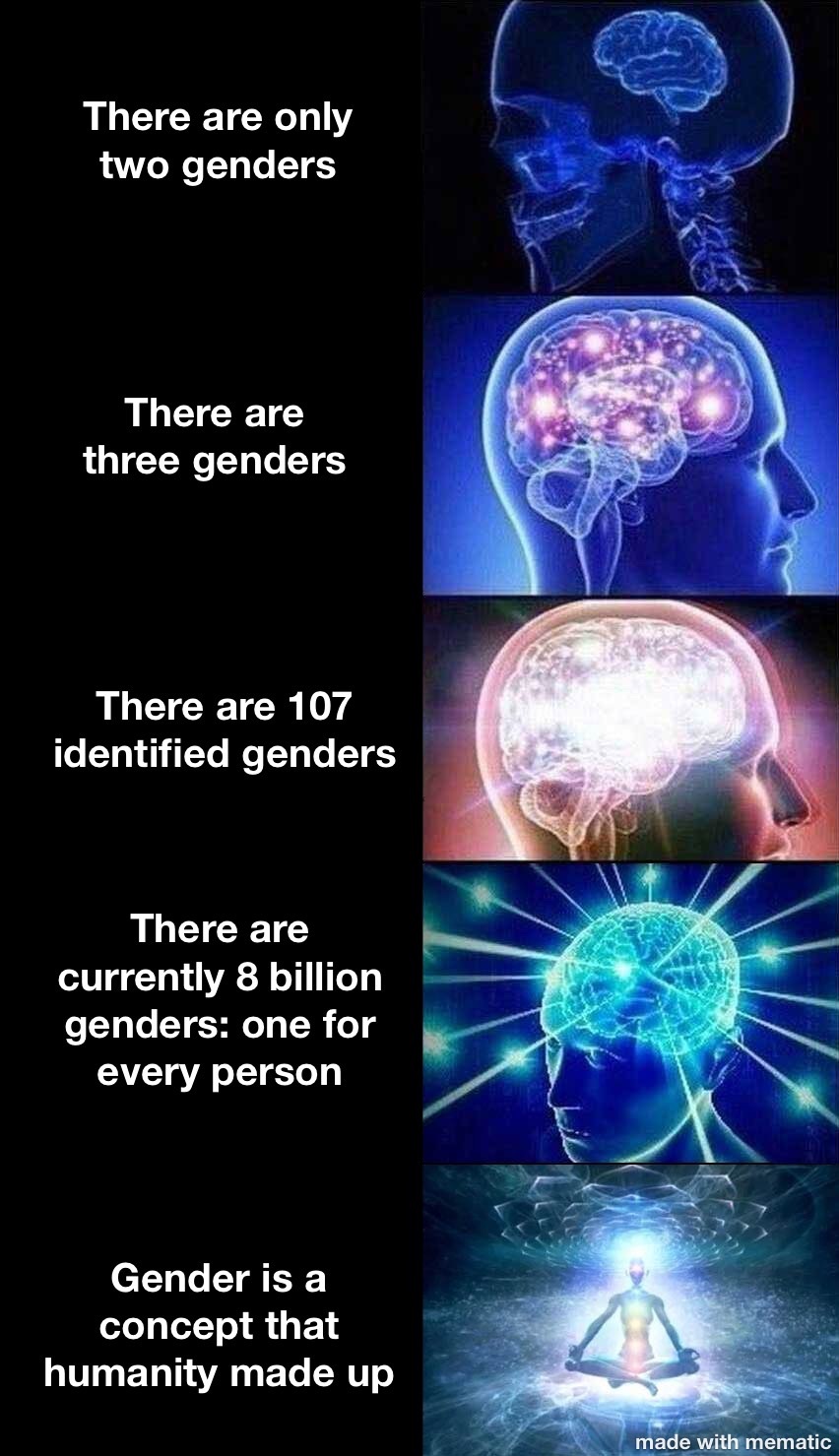this post was submitted on 12 Dec 2023
146 points (100.0% liked)
LGBTQ+
6199 readers
2 users here now
All forms of queer news and culture. Nonsectarian and non-exclusionary.
See also this community's sister subs Feminism, Neurodivergence, Disability, and POC
Beehaw currently maintains an LGBTQ+ resource wiki, which is up to date as of July 10, 2023.
This community's icon was made by Aaron Schneider, under the CC-BY-NC-SA 4.0 license.
founded 2 years ago
MODERATORS
you are viewing a single comment's thread
view the rest of the comments
view the rest of the comments

Literally everything is just a concept humanity made up, informed by our very specific and limited abilities of perception.
Even numbers are represented differently in different languages, and different cultures teach different methods of interacting with them, and aliens could have completely different paradigms for interpreting physical reality than us altogether.
Anyone who tries to make claims about something being a universal or scientific "Truth-with-a-capital-T" that transcends human definitions is pushing an agenda.
What about the fine structure constant? :P
Or pi, for a more well known example that falls out of pure math rather than having to be measured. But I guess OP will say circles are a social construct, too.
Do circles exist independently of humans who can perceive them? My instinct tells me yes of course but my instinct also interprets with my human brain some outside stimulus as a "circle," so I'm biased along with probably most other human brains. The nature of objective truth gets trippy.
Round Earth, confirmed to be a social construct 😆
The basic weirdness is that we can't experience objective reality as due to the nature of our minds we can only possibly subjectively experience it interpreted by our senses and sense-making. Although even the ancients could prove the curvature of the Earth by measuring shadows at the same time in places separated by enough distance, a person born blind would have to trust the sighted that shadows exist for example. Since we are aware of some phenomena we can't observe without the use of specialized tools and some branches of science diverge significantly from what's intuitive to us, It's very likely that there are some elements of objective reality (if it exists) which we couldn't possibly observe or comprehend. I know all that sounds like star-gazing bs which is completely irrelevant, and in almost all circumstances it is, but approaching facts as most likely to be true given the evidence rather than certainly true can reveal ways of thinking which could be more useful than our current paradigms. Although unlikely in my opinion, it's possible that in a few centuries the circle may be considered similarly to how the four elements are considered today. I personally can't imagine how that could be possible, but I'm just some random person in 2023. I see the circle and describe it as a circle because that's what I know, and what I know is loaded with context and limitations.
Yeah, it sounds kind of weird, but you are right of course. We got an example of that in "atoms": originally they were supposed to mean "indivisible minimal components", and for a long time the 4 elements were supposed to be types of atoms... until we discovered that atoms can be divided into even smaller particles (electrons, protons, neutrons), and those particles in turn into even smaller ones yet (quarks), then we had to come with the word "quanta" to mean the new "indivisible minimal component" since "atom" got entrenched to mean "a clump with this number of protons" which nonetheless could vary in the number of neutrons (isotopes) and electrons (ions).
On the bright side, the "quanta" are now a moving target, applicable to "whatever we don't know how to divide any further"... but we might learn how to in the future.
IMHO, it is likely going to get explained at some point in the future why the circle is a circle, and why pi has the value we see, for us. It might take some radical explanation of the nature of space-time, which will "naturally" give raise to the value of pi, and at the same time describe spaces where it would take different values.